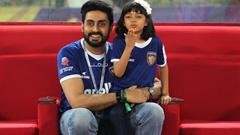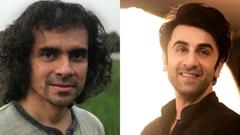Meet Nizami Bandhu, the 'Rockstar Qawwali' singers
It is 8 pm on a chilly Thursday and the winter wind is howling outside. Yet there is hardly any space for latecomers on the cold marble floors inside the Hazrat Nizamuddin Auliya Dargah, where the stage is set for the Nizami Bandh
Published: Monday,Dec 11, 2017 12:34 PM GMT-07:00

It is 8 pm on a chilly Thursday and the winter wind is howling outside. Yet there is hardly any space for latecomers on the cold marble floors inside the Hazrat Nizamuddin Auliya Dargah, where the stage is set for the Nizami Bandhu to render their soulful melodies.
Nizami Bandhu is not your usual qawwali group. Headed by Chand Nizami and accompanied by his two nephews, Shadab Faridi Nizami and Sohrab Faridi Nizami, the group is now fondly called the "Rockstar Qawwali" singers after they shot to fame after sharing screen space with actor Ranbir Kapoor in the movie "Rockstar" for the song "Kun Faya Kun" that was shot inside the Dargah.
"There is no doubt that the movie brought us into the limelight. People often call us the 'Rockstars of qawwali', but we have been the rockstars for the past 700 years," Chand Nizami told IANS.
"There is a certain power inside the Dargah, you may call it his (Nizamuddin's) blessings. In the movie, too, Ranbir Kapoor found his path while staying in the Dargah; it was the turning point for his character. And for us too, this is the place that has been protecting us since birth," Sohrab Faridi said.
However, there's a little secret behind the song. It was actually sung by singer Mohit Chauhan, Javed Ali and the music director of the movie, A.R. Rahman, himself. The Nizami Bandhu had only lip-synched the scene.
"It was Rahman Saab's idea to picturise the song inside the Dargah and made us appear during the scene. You can say it has been a life-changing experience. We had a voice, but after the movie we had a face too. People became aware that we perform qawwalis at the Dargah," Shadab Faridi beamed.
Even before they were featured in the movie, singers like Mohit Chauhan and director Imtiaz Ali, among others, had been frequent visitors to their qawwali sessions. But they share a special bond with Rahman who has known the Nizami family for the past 15 years.
"Afsar Nizami saab (a dargah khadim, one of the shrine's hereditary caretakers) introduced us to him. Whenever he is in Delhi, he makes a visit here (Dargah) and spends time with us. He is a very humble and beautiful person," Chand Nizami said.
While Shadab acknowledged that ever since their appearance in "Rockstar" there has been a rise in footfall at the Dargah, especially on Thursdays, their journey in Bollywood began back in 2006 with Shoojit Sircar's 2005 film "Yahaan"
The Nizamis are happy that there is a rising trend in the film industry to consider Sufi songs and qawwali singers seriously, a change that they welcome.
"It is good to see music directors are now giving qawwali singers a platform to showcase their talent. But if any one person is to be given credit for it, it has to be Rahman Saab. Be it 'Piya Haji Ali' in the movie 'Fiza' or 'Khwaja Mere Khwaja' in 'Jodha Akbar', he has always tried to bring in a Sufi touch. We are hoping for some more collaboration with him," Shadab said.
The Nizami Bandhu are continuing a rich legacy of Sufism which is 700 years old. They claim to be the direct descendants of court singers of Sufi saint Hazrat Nizamuddin Auliya. Sohrab and Shadab are of the 15th generation of the family that has taken up the responsibility of carrying the rich tradition forward.
Sohrab said there have been days when they have performed all night as the audience wouldn't allow them to leave, especially during the festive season. And by this, he did not mean the festivals of a particular religion.
"Basant Panchami is also celebrated here with qawwali performances. Music and Sufism have no religion. It is for humans, it is about expressing their emotions and feelings," he noted.
The Nizami Bandhu also made their debut in the Jashn-E-Rekhta -- a three-day cultural festival that celebrates the essence of Urdu, Shayeri, Mushaira, that kicked off in the capital on December 8.
Your reaction
 Nice
Nice Awesome
Awesome Loved
Loved LOL
LOL OMG
OMG Cry
Cry Fail
Fail






















Comments (0)